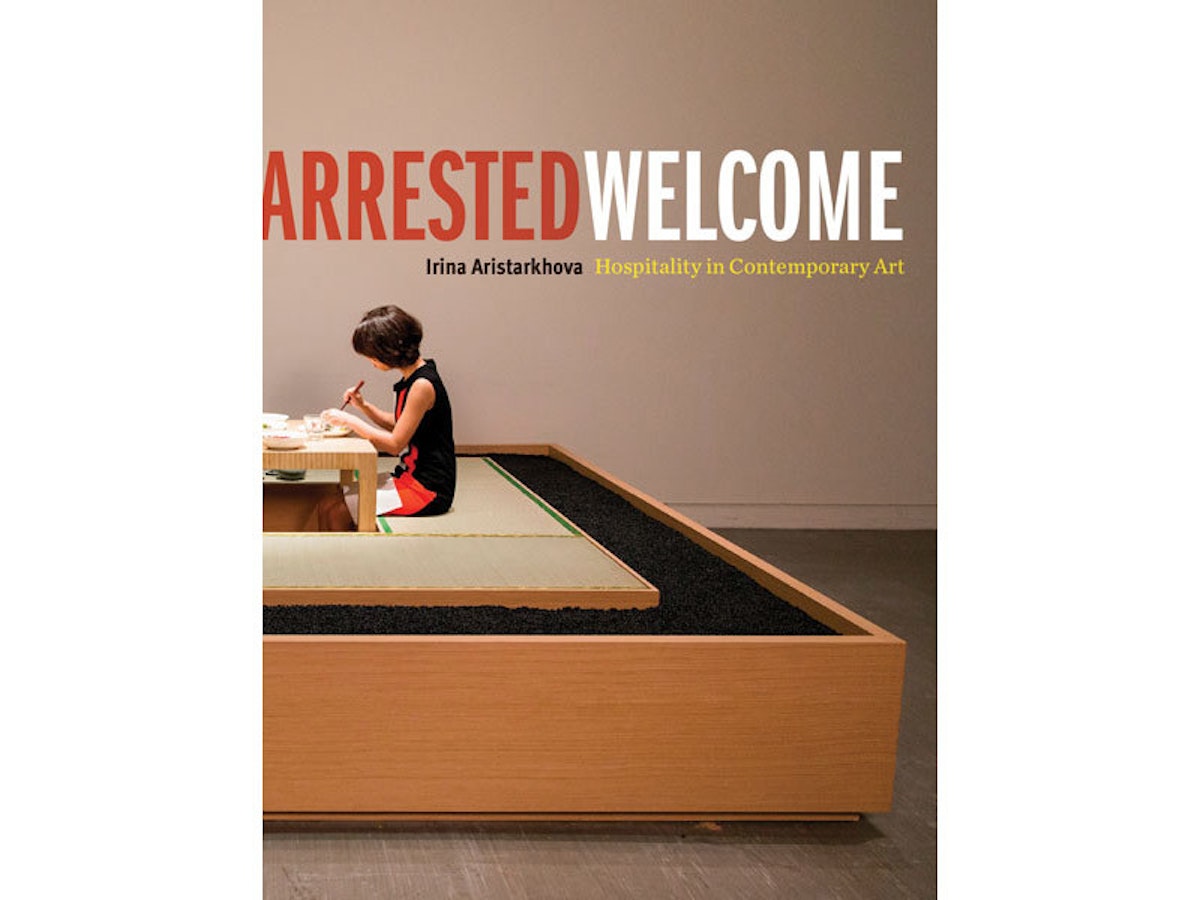Faculty Spotlight: Irina Aristarkhova on Hospitality, Feminism, and Contemporary Art
In June 2020, Penny W. Stamps School of Art & Design professor Irina Aristarkhova published her most recent book, Arrested Welcome: Hospitality in Contemporary Art (University of Minnesota Press).
A scholar of aesthetic, cultural, sexual, and political differences, Aristarkhova investigates the ways eight contemporary artists — Ana Prvački, Faith Wilding, Lee Mingwei, Kathy High, Mithu Sen, Pippa Bacca, Silvia Moro, and Ken Aptekar — embody and convey hospitality.
Amid xenophobic injustices, Aristarkhova invites readers to consider their own practices of hospitality based on contemporary art works. Employing a feminist perspective, Aristarkhova looks deeply into topics such as gender stereotypes of welcome, ways to reclaim civility, and the means by which various guests (sometimes human, sometimes animal) push the limits of our hosting traditions.

Recently, the Stamps Communications Team caught up with Aristarkhova to learn more about her research, her approach, and the importance of hospitality in our everyday lives.
Q: How did you first encounter this research topic? Was it through the work of a specific artist?
Having lived in Europe, Asia, and now, the US, as an immigrant, I have been acutely aware of how mundane interactions, representations and modes of being in the world might make a difference in relation to practices of inclusion or exclusion in a society. As a feminist scholar of contemporary art and culture, I explore new paths and alternative forms of thinking and creative making, that would change the exclusionary habits of what we call “the canon,” in the arts and humanities. In my first monograph, Hospitality of the Matrix: Philosophy, Biomedicine, and Culture, I used the concept of hospitality to chart such new paths towards understanding the self and the other, and I ended the book by showing how one contemporary artist — Lee Mingwei — redefined hospitality through his aesthetic to make it more inclusive of various genders and cultures. In this new book, the result of my multi-year research on the works of eight artists, I present the contribution that contemporary art can make to the current moment.
Q: How does a feminist perspective inform your research?
Often, hospitality is defined through femininity. According to this logic, women, especially mothers, are naturally more welcoming and accommodating. As a result, their acts of hospitality are not seen as anything special to celebrate, acknowledge, reward, or be grateful for, since they are supposed to be caring and welcoming. The labor of hospitality, the act of hospitality — as a choice of welcome, with all its pleasures, anxieties and complications — are what gets revealed in my book as I encounter the artworks. Women are not the only ones who get unnoticed. Hospitality traditions have long been based on hierarchies of welcome: who gets to be welcomed the most, and who is seen unworthy of our specific welcome. Inequalities and critical questions have long been explored by feminist scholarship, including in contemporary art, and I use it in my book in addition to other approaches. My feminist take on hospitalty questions its gender and cultural stereotypes, expanding the notion of hospitality and its potential.
Q: Are there any examples that come to mind of everyday citizens or artists embodying, offering, or re-envisioning hospitality?
I open my book with a story of a documentary filmmaker, Linda Hattendorf, who ended up hosting a homeless man, an artist Jimmy Mirikitani, in her small apartment in New York, just after 9/11. Why not many more of us open our houses to those in need, or ourselves to the promise of welcome? I discuss various reasons why. Mithu Sen, an artist I discuss in another chapter, invited guests to someone else’s house in Los Angeles as a part of her art project, but the way she did it led to her original host — the owner of the house — to disinvite her. I discuss the reasons why the host disinvited her. These are everyday decisions in our lives. During the most recent protests for Black Lives Matter, a resident of Washington, D.C., opened his door to provide a refuge to dozens of protesters. In the conclusion of my book, I write about an artwork by Ken Aptekar “NACHBARN / Neighbors” and what neighbors can do to each other, including harm and also to save lives. Aptekar’s work is deeply impactful, making me, and I hope, my readers, to consider how we can move to a better place in our relations with each other.
Q: What are some key takeaways that we can learn from artists about hospitality? What are some simple ways that we can invite hospitality into our everyday lives?
My key takeaway from the artists has been that no gesture is small in hospitality, and that a welcoming note, an opened door, a patient response, a shared meal, can suddenly become much more than what they usually are or what they were meant to be — modest gestures of sharing the world. These moments of various crises, such as the ones in which we find ourselves right now, show how our societies have always been about who and how much is worthy of our personal, unreserved, welcome. And the artists are a big part of this global reckoning.
Stamps Gallery and University of Minnesota Press co-host a virtual book launch event with Irina Aristarkhova on Monday, June 29, 2020 from 10.30am–12pm EST. She will be joined in conversation by artists Ana Prvački, Faith Wilding, Lee Mingwei, Kathy High, Mithu Sen, Ken Aptekar, and Stamps Gallery Director Srimoyee Mitra. Learn more.
Additionally, Arrested Welcome can be ordered from the University of Minnesota Press using code MN86810 for a 30% discount through September 1, 2020. The open access edition is available on the Manifold platform. Also available in bookstores.